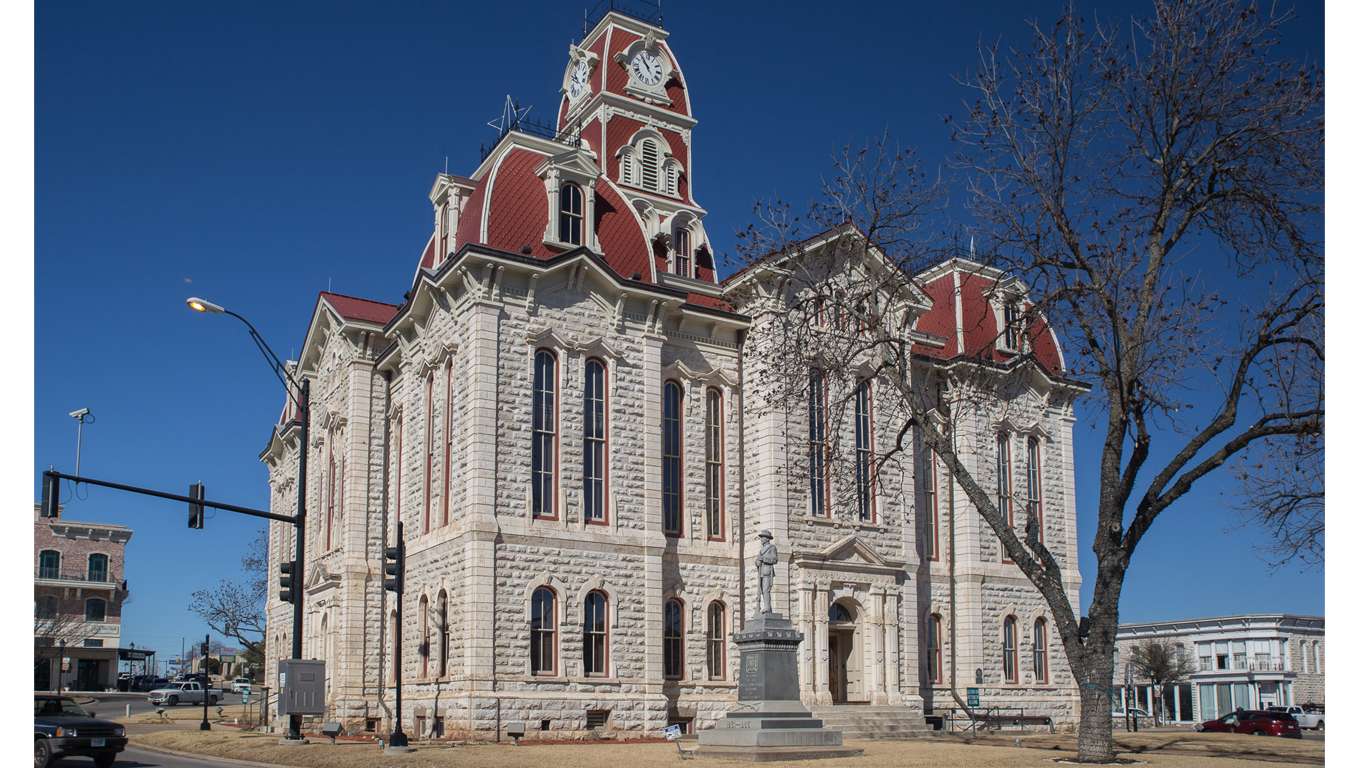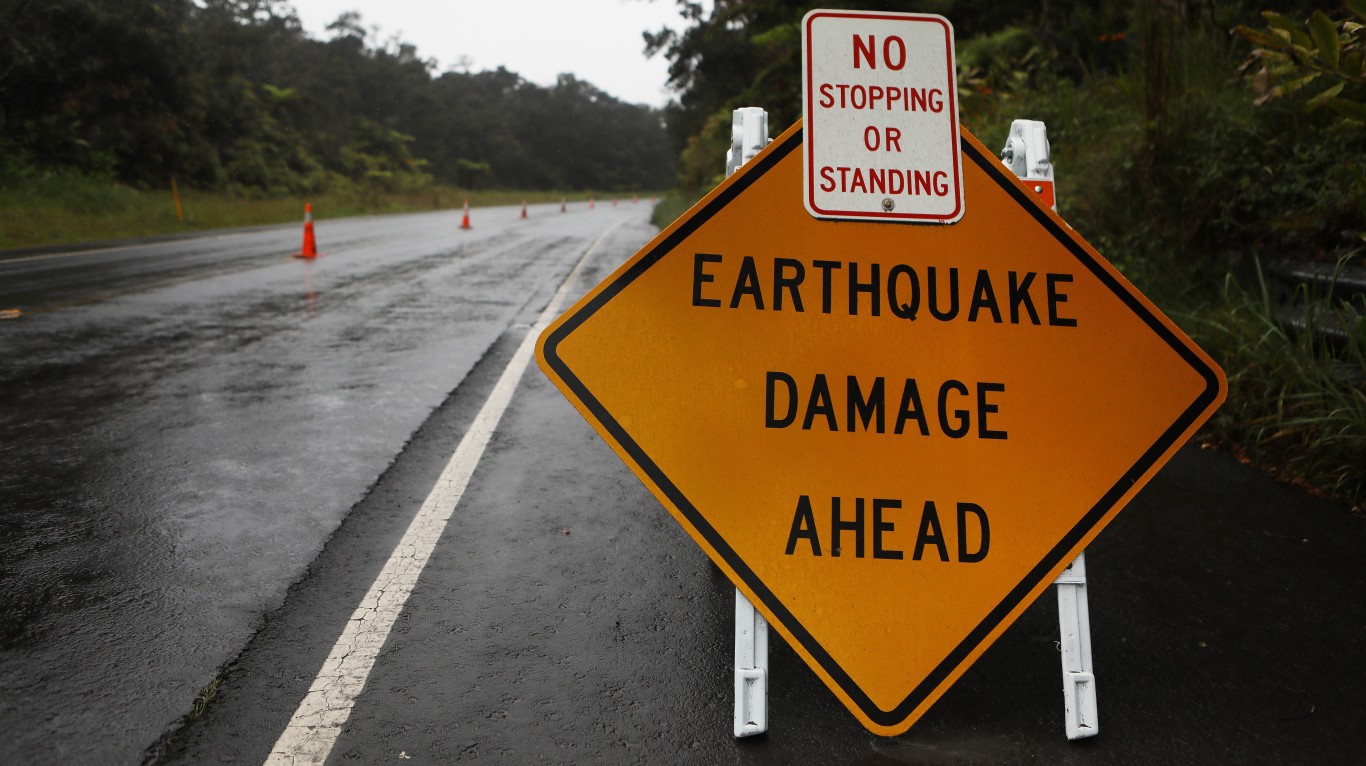
Sunday was the hottest day ever recorded on Earth, and 2024 could beat 2023 as the warmest year on record. According to data from the European Copernicus Climate Change Service (C3S), global average temperature on Sunday was 17.09 degrees Celsius (62.76 degrees Fahrenheit), higher than the record set on July 6, 2023 of 17.08 degrees Celsius.
While this difference is a small 0.01 degrees C, both records are considerably higher than the previous record of 16.8°C set in 2016. C3S Director Carlo Buontempo said, “We are now in truly uncharted territory and as the climate keeps warming, we are bound to see new records being broken in future months and years.”
With warmer, drier weather comes higher wildfire risk. In the past few weeks, the country has baked in high temperatures, with California and parts of the Pacific Northwest getting no relief and now struggling with more than two dozen fires. Evacuations are underway in Plumas and Ventura Counties in California and Paulina, Oregon. A “LEVEL 3 – GO NOW! Evacuate immediately” was issued in parts of Mosier, Oregon. And these are just a few of the evacuations initiated.
As global warming increases wildfire risk to parts of the country, people still move to these areas. To determine the wildfire zones people are flocking to, 24/7 Wall St. reviewed data on population change due to net migration from the U.S. Census Bureau’s Population and Housing Unit Estimates program and natural hazard risk for counties from the March 2023 FEMA National Risk Index dataset. Counties classified as “relatively high” or “very high” risk of wildfire by FEMA were ranked based on total population change due to net migration from April 2020 to July 2023. (Net migration is the number of people moving into an area less the number of people leaving.)
While Florida may not always grab the headlines when it comes to wildfires, it still has areas considered to have relatively high to high wildfire risk, and 16 of these counties in the state attracted population from outside the county. For example, the population of Polk County grew by nearly 95,000 from net migration since 2020 despite a FEMA wildfire risk rating of 99.0 out of 100, and Lee County (For Myers) grew by nearly 80,000 despite a risk rating of 98.0/100. (Also see: Every Billion Dollar Weather Disaster in the US in the Past Year.)
The county that added the most residents from net migration is also the largest on the list. Maricopa County, Arizona, which encompasses Phoenix, has added 133,052 residents since 2020. The county, with its nearly 4.6 million residents, is tied for having the second highest wildfire risk rating on the list at 99.7/100. The county with the highest wildfire risk rating on the list in Washington County, Utah, with 99.9/100.
Why are we covering this
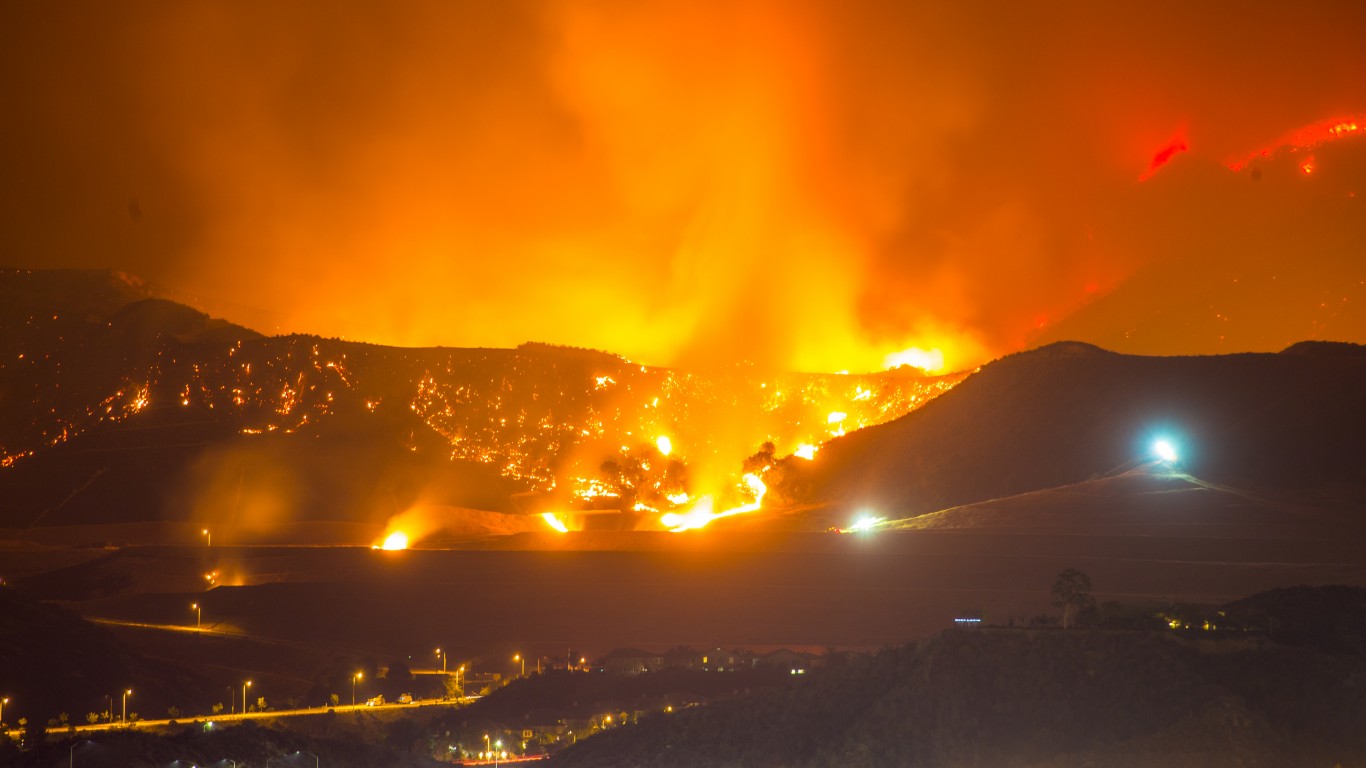
50. Josephine County, OR

- Population change due to net migration, 2020 to 2023: +1,872 residents
- FEMA wildfire risk rating: 97.4/100
- Total population: 87,821
- County seat: Grants Pass
49. El Dorado County, CA
- Population change due to net migration, 2020 to 2023: +1,917 residents
- FEMA wildfire risk rating: 99.3/100
- Total population: 192,215
- County seat: Placerville
48. Okanogan County, WA
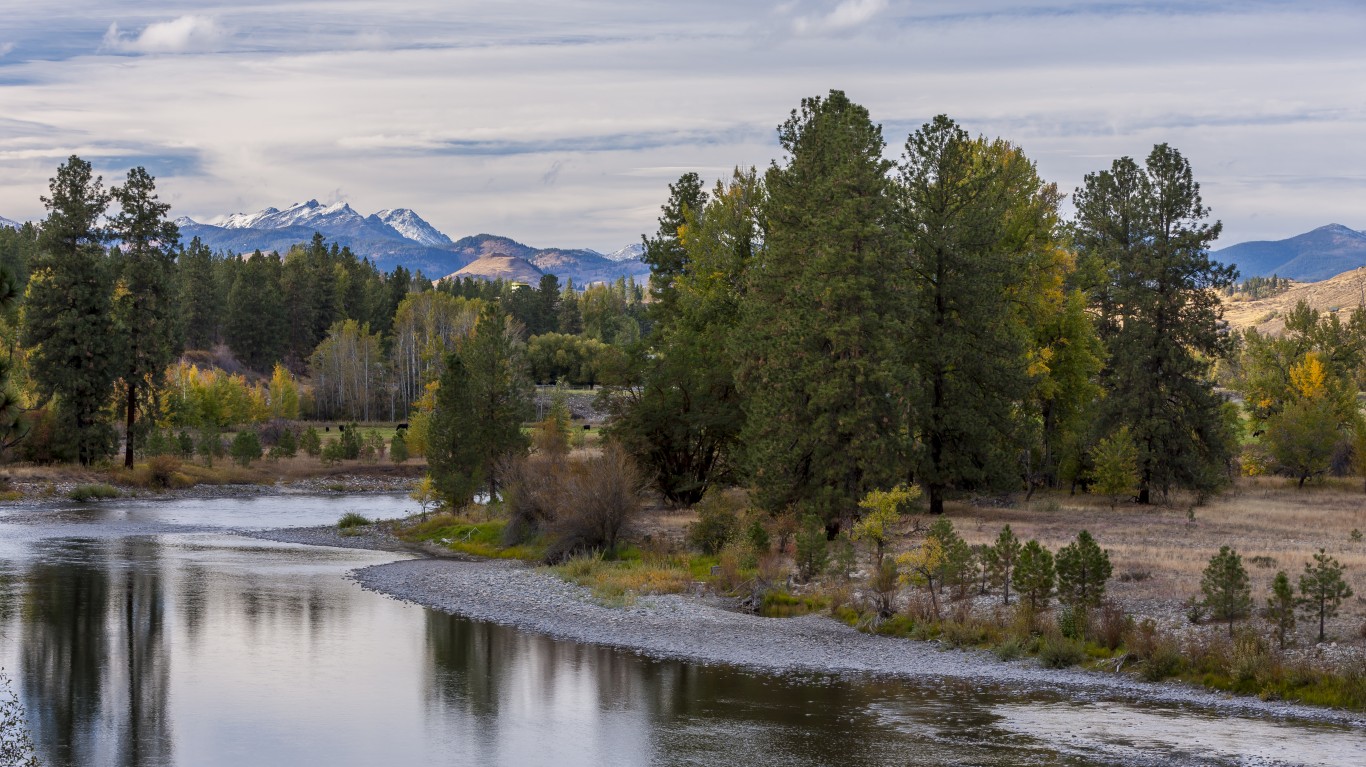
- Population change due to net migration, 2020 to 2023: +1,944 residents
- FEMA wildfire risk rating: 99.0/100
- Total population: 43,712
- County seat: Okanogan
47. Midland County, TX

- Population change due to net migration, 2020 to 2023: +1,971 residents
- FEMA wildfire risk rating: 98.0/100
- Total population: 177,108
- County seat: Midland
46. Calaveras County, CA
- Population change due to net migration, 2020 to 2023: +2,035 residents
- FEMA wildfire risk rating: 99.4/100
- Total population: 46,565
- County seat: San Andreas
45. Kenai Peninsula Borough, AK
- Population change due to net migration, 2020 to 2023: +2,062 residents
- FEMA wildfire risk rating: 97.3/100
- Total population: 61,223
- County seat: Soldotna
44. Amador County, CA

- Population change due to net migration, 2020 to 2023: +2,081 residents
- FEMA wildfire risk rating: 97.4/100
- Total population: 41,811
- County seat: Jackson
43. Gila County, AZ
- Population change due to net migration, 2020 to 2023: +2,425 residents
- FEMA wildfire risk rating: 99.3/100
- Total population: 54,003
- County seat: Globe
42. Santa Fe County, NM

- Population change due to net migration, 2020 to 2023: +2,494 residents
- FEMA wildfire risk rating: 98.3/100
- Total population: 155,956
- County seat: Santa Fe
41. El Paso County, CO

- Population change due to net migration, 2020 to 2023: +2,630 residents
- FEMA wildfire risk rating: 98.2/100
- Total population: 744,215
- County seat: Colorado Springs
40. Hendry County, FL
- Population change due to net migration, 2020 to 2023: +3,267 residents
- FEMA wildfire risk rating: 97.1/100
- Total population: 43,333
- County seat: LaBelle
39. Navajo County, AZ

- Population change due to net migration, 2020 to 2023: +3,924 residents
- FEMA wildfire risk rating: 98.2/100
- Total population: 109,175
- County seat: Holbrook
38. Ravalli County, MT

- Population change due to net migration, 2020 to 2023: +4,341 residents
- FEMA wildfire risk rating: 99.7/100
- Total population: 47,738
- County seat: Hamilton
37. Madera County, CA

- Population change due to net migration, 2020 to 2023: +4,508 residents
- FEMA wildfire risk rating: 99.6/100
- Total population: 162,858
- County seat: Madera
36. Iron County, UT

- Population change due to net migration, 2020 to 2023: +5,717 residents
- FEMA wildfire risk rating: 98.9/100
- Total population: 64,211
- County seat: Parowan
35. Pennington County, SD

- Population change due to net migration, 2020 to 2023: +5,774 residents
- FEMA wildfire risk rating: 97.7/100
- Total population: 115,903
- County seat: Rapid City
34. Alachua County, FL
- Population change due to net migration, 2020 to 2023: +6,751 residents
- FEMA wildfire risk rating: 98.3/100
- Total population: 285,994
- County seat: Gainesville
33. Hawaii County, HI
- Population change due to net migration, 2020 to 2023: +6,824 residents
- FEMA wildfire risk rating: 98.8/100
- Total population: 207,615
- County seat: Hilo
32. Tooele County, UT
- Population change due to net migration, 2020 to 2023: +7,500 residents
- FEMA wildfire risk rating: 98.0/100
- Total population: 82,051
- County seat: Tooele
31. Wise County, TX

- Population change due to net migration, 2020 to 2023: +9,304 residents
- FEMA wildfire risk rating: 97.1/100
- Total population: 78,097
- County seat: Decatur
30. Broward County, FL

- Population change due to net migration, 2020 to 2023: +9,898 residents
- FEMA wildfire risk rating: 98.9/100
- Total population: 1,962,531
- County seat: Fort Lauderdale
29. Deschutes County, OR

- Population change due to net migration, 2020 to 2023: +10,290 residents
- FEMA wildfire risk rating: 98.1/100
- Total population: 208,513
- County seat: Bend
28. Washoe County, NV

- Population change due to net migration, 2020 to 2023: +10,749 residents
- FEMA wildfire risk rating: 97.6/100
- Total population: 498,022
- County seat: Reno
27. Washington County, AR

- Population change due to net migration, 2020 to 2023: +11,697 residents
- FEMA wildfire risk rating: 97.0/100
- Total population: 261,549
- County seat: Fayetteville
26. Mohave County, AZ
- Population change due to net migration, 2020 to 2023: +18,582 residents
- FEMA wildfire risk rating: 99.1/100
- Total population: 223,682
- County seat: Kingman
25. Placer County, CA
- Population change due to net migration, 2020 to 2023: +19,515 residents
- FEMA wildfire risk rating: 98.1/100
- Total population: 423,561
- County seat: Auburn
24. Yavapai County, AZ

- Population change due to net migration, 2020 to 2023: +19,972 residents
- FEMA wildfire risk rating: 99.6/100
- Total population: 249,081
- County seat: Prescott
23. Washington County, UT

- Population change due to net migration, 2020 to 2023: +21,102 residents
- FEMA wildfire risk rating: 99.9/100
- Total population: 202,452
- County seat: St. George
22. Orange County, FL

- Population change due to net migration, 2020 to 2023: +21,634 residents
- FEMA wildfire risk rating: 99.5/100
- Total population: 1,471,416
- County seat: Orlando
21. Benton County, AR

- Population change due to net migration, 2020 to 2023: +22,158 residents
- FEMA wildfire risk rating: 97.2/100
- Total population: 311,013
- County seat: Bentonville
20. Parker County, TX
- Population change due to net migration, 2020 to 2023: +24,378 residents
- FEMA wildfire risk rating: 97.9/100
- Total population: 173,494
- County seat: Weatherford
19. Pima County, AZ

- Population change due to net migration, 2020 to 2023: +26,752 residents
- FEMA wildfire risk rating: 99.7/100
- Total population: 1,063,162
- County seat: Tucson
18. Ada County, ID
- Population change due to net migration, 2020 to 2023: +26,973 residents
- FEMA wildfire risk rating: 99.1/100
- Total population: 524,673
- County seat: Boise
17. Utah County, UT

- Population change due to net migration, 2020 to 2023: +31,209 residents
- FEMA wildfire risk rating: 99.6/100
- Total population: 719,174
- County seat: Provo
16. Collier County, FL

- Population change due to net migration, 2020 to 2023: +32,303 residents
- FEMA wildfire risk rating: 98.5/100
- Total population: 404,310
- County seat: East Naples
15. Marion County, FL
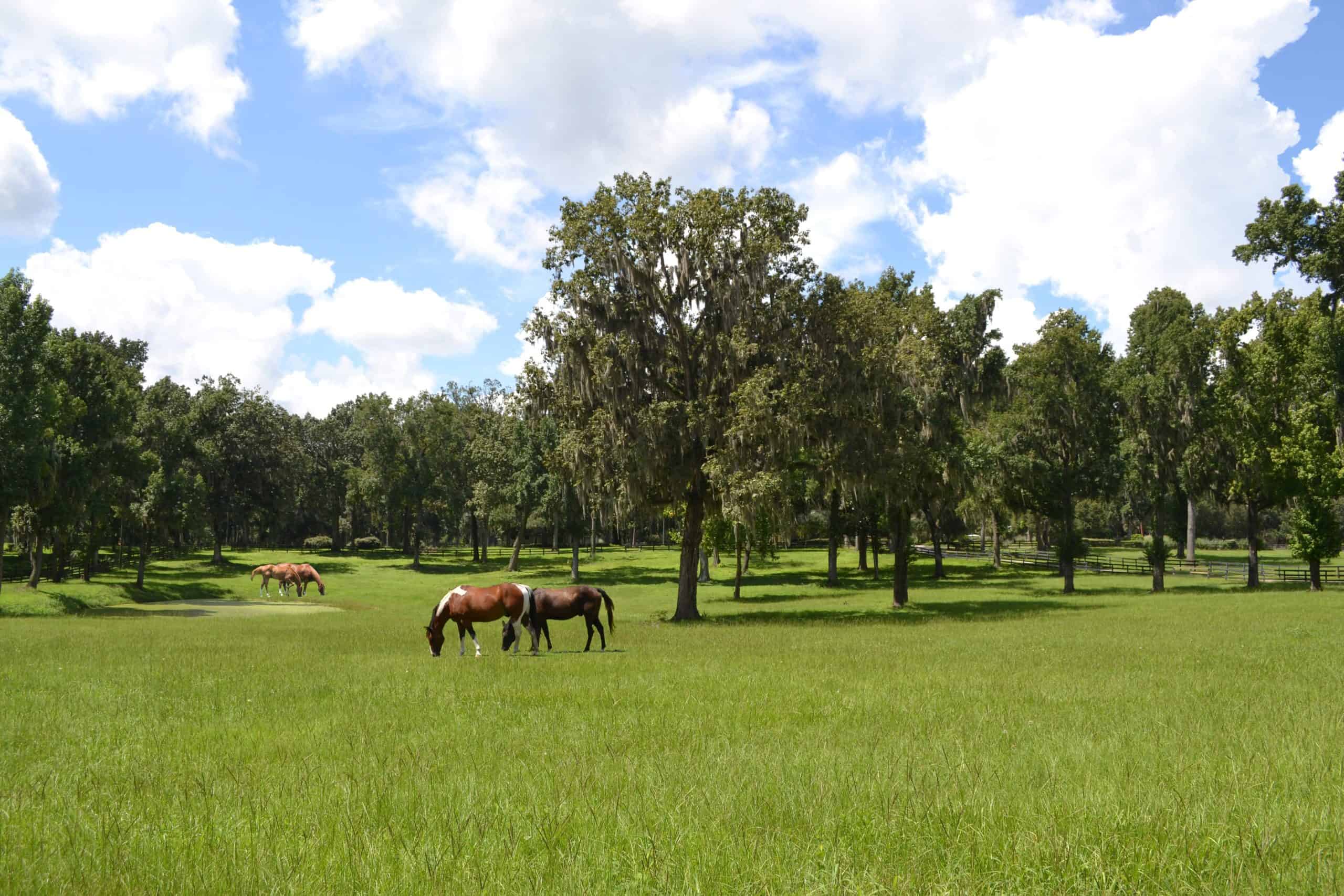
- Population change due to net migration, 2020 to 2023: +43,614 residents
- FEMA wildfire risk rating: 99.2/100
- Total population: 409,959
- County seat: Ocala
14. Osceola County, FL

- Population change due to net migration, 2020 to 2023: +44,165 residents
- FEMA wildfire risk rating: 97.8/100
- Total population: 437,784
- County seat: Kissimmee
13. Lake County, FL
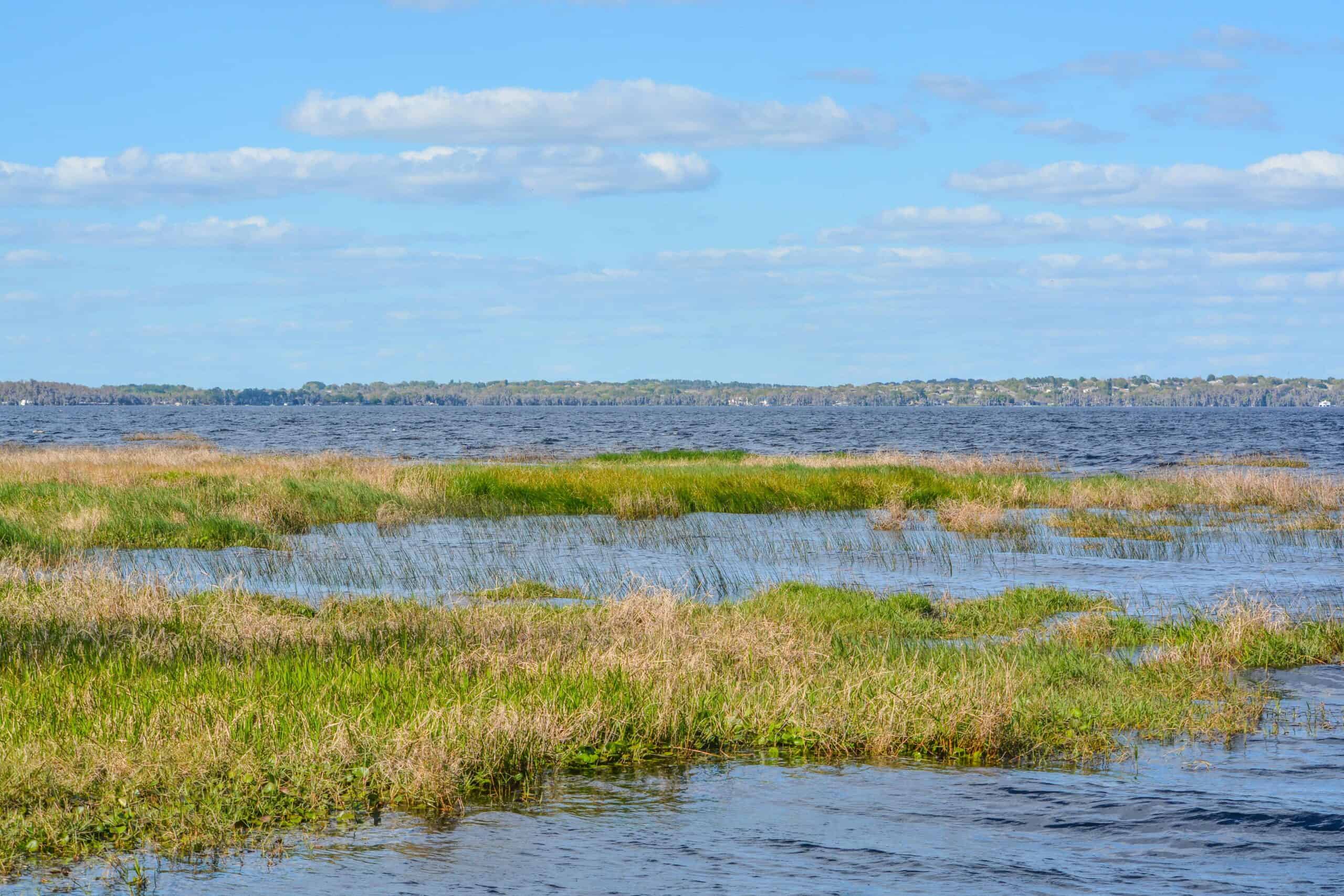
- Population change due to net migration, 2020 to 2023: +46,645 residents
- FEMA wildfire risk rating: 98.4/100
- Total population: 424,462
- County seat: Tavares
12. Volusia County, FL

- Population change due to net migration, 2020 to 2023: +48,888 residents
- FEMA wildfire risk rating: 98.2/100
- Total population: 590,357
- County seat: DeLand
11. Palm Beach County, FL

- Population change due to net migration, 2020 to 2023: +49,293 residents
- FEMA wildfire risk rating: 96.8/100
- Total population: 1,533,801
- County seat: West Palm Beach
10. Brevard County, FL
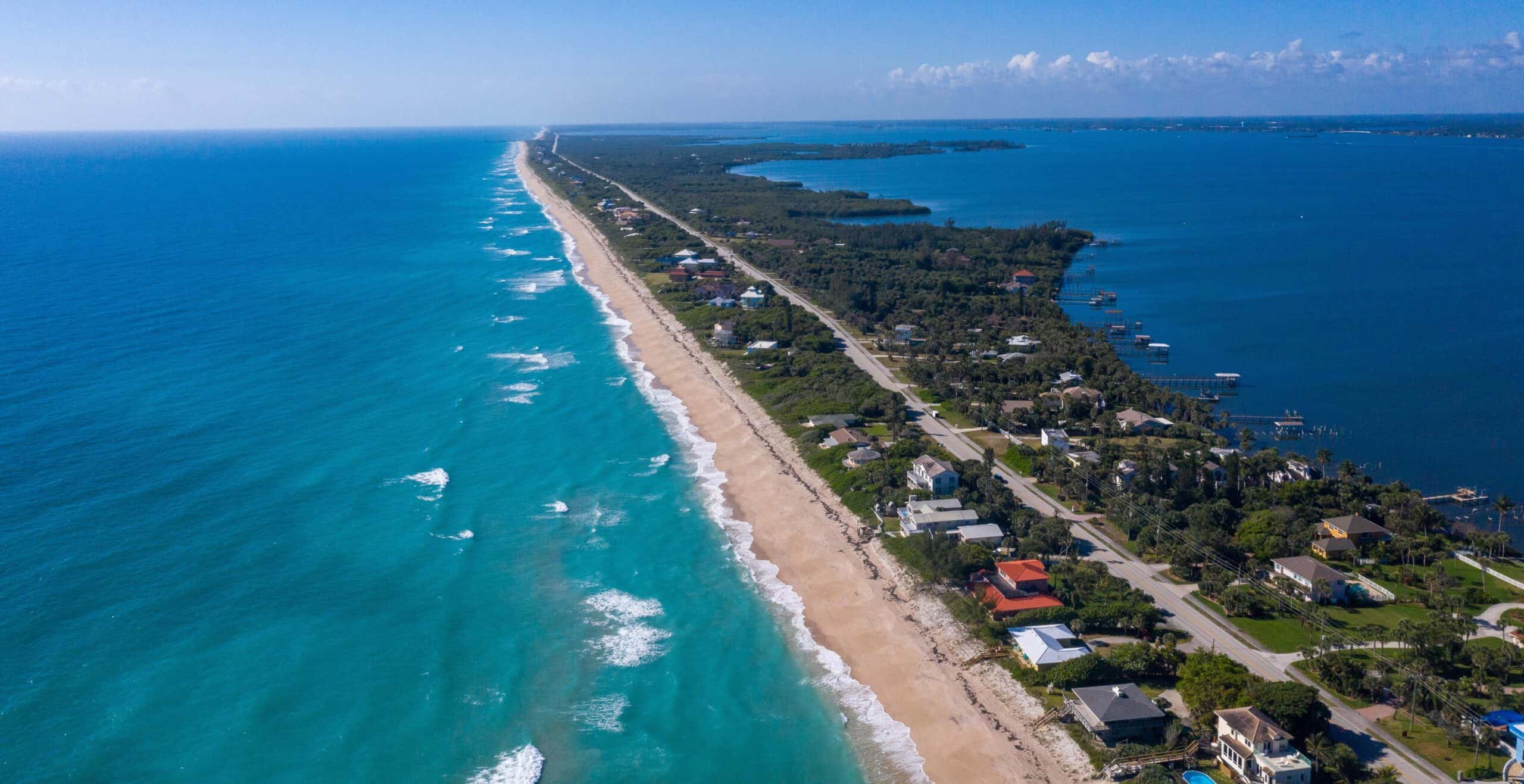
- Population change due to net migration, 2020 to 2023: +49,354 residents
- FEMA wildfire risk rating: 98.9/100
- Total population: 643,979
- County seat: Titusville
9. Riverside County, CA

- Population change due to net migration, 2020 to 2023: +55,574 residents
- FEMA wildfire risk rating: 100.0/100
- Total population: 2,492,442
- County seat: Riverside
8. Pinal County, AZ
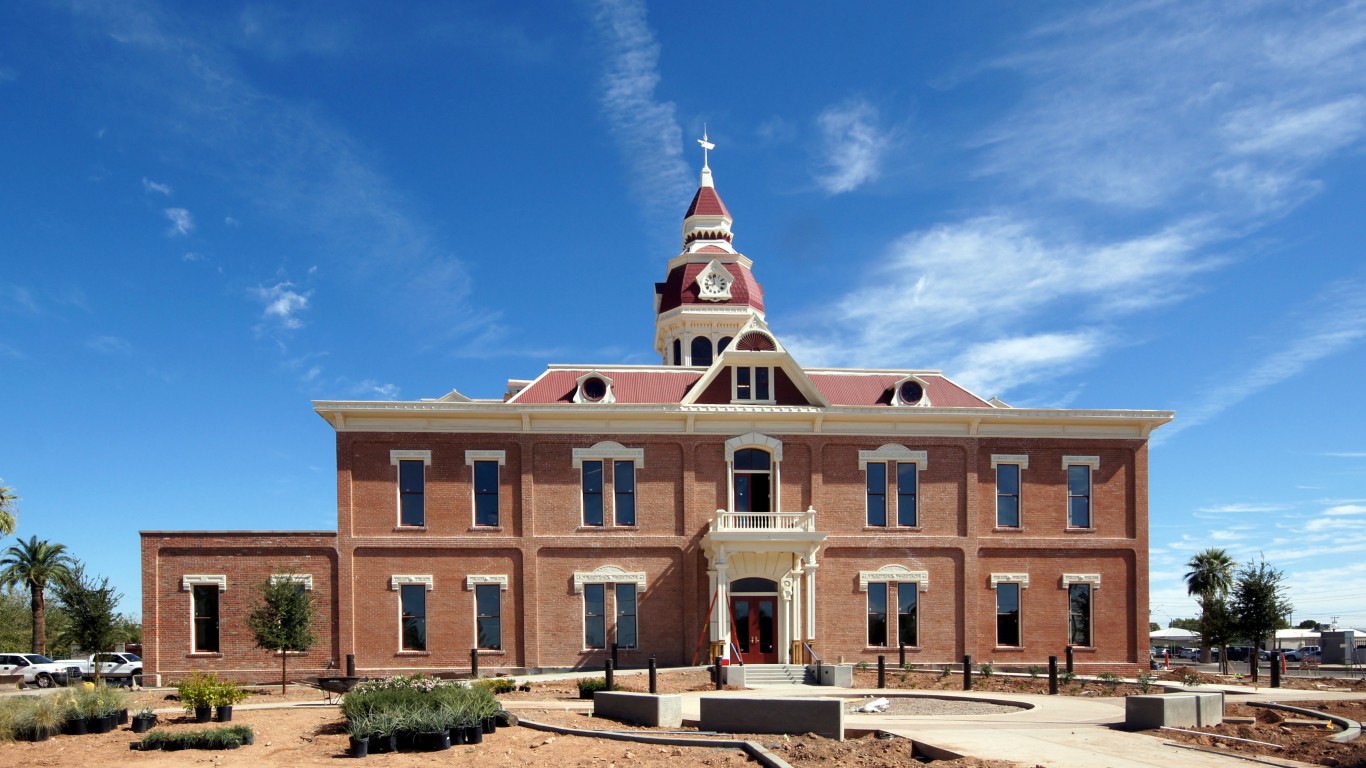
- Population change due to net migration, 2020 to 2023: +57,990 residents
- FEMA wildfire risk rating: 98.4/100
- Total population: 484,239
- County seat: Florence
7. Clark County, NV

- Population change due to net migration, 2020 to 2023: +59,432 residents
- FEMA wildfire risk rating: 99.4/100
- Total population: 2,336,573
- County seat: Las Vegas
6. Hillsborough County, FL

- Population change due to net migration, 2020 to 2023: +62,932 residents
- FEMA wildfire risk rating: 97.2/100
- Total population: 1,535,564
- County seat: Tampa
5. Pasco County, FL

- Population change due to net migration, 2020 to 2023: +78,725 residents
- FEMA wildfire risk rating: 96.8/100
- Total population: 632,996
- County seat: Dade City
4. Lee County, FL

- Population change due to net migration, 2020 to 2023: +79,992 residents
- FEMA wildfire risk rating: 98.0/100
- Total population: 834,573
- County seat: Fort Myers
3. Denton County, TX
- Population change due to net migration, 2020 to 2023: +82,694 residents
- FEMA wildfire risk rating: 97.5/100
- Total population: 1,007,703
- County seat: Denton
2. Polk County, FL

- Population change due to net migration, 2020 to 2023: +94,601 residents
- FEMA wildfire risk rating: 99.0/100
- Total population: 818,330
- County seat: Bartow
1. Maricopa County, AZ

- Population change due to net migration, 2020 to 2023: +133,052 residents
- FEMA wildfire risk rating: 99.7/100
- Total population: 4,585,871
- County seat: Phoenix
It’s Your Money, Your Future—Own It (sponsor)
Are you ahead, or behind on retirement? For families with more than $500,000 saved for retirement, finding a financial advisor who puts your interest first can be the difference, and today it’s easier than ever. SmartAsset’s free tool matches you with up to three fiduciary financial advisors who serve your area in minutes. Each advisor has been carefully vetted and must act in your best interests. Start your search now.
If you’ve saved and built a substantial nest egg for you and your family, don’t delay; get started right here and help your retirement dreams become a retirement reality.
Thank you for reading! Have some feedback for us?
Contact the 24/7 Wall St. editorial team.










